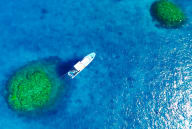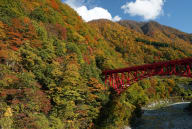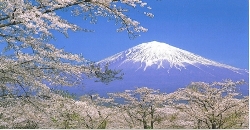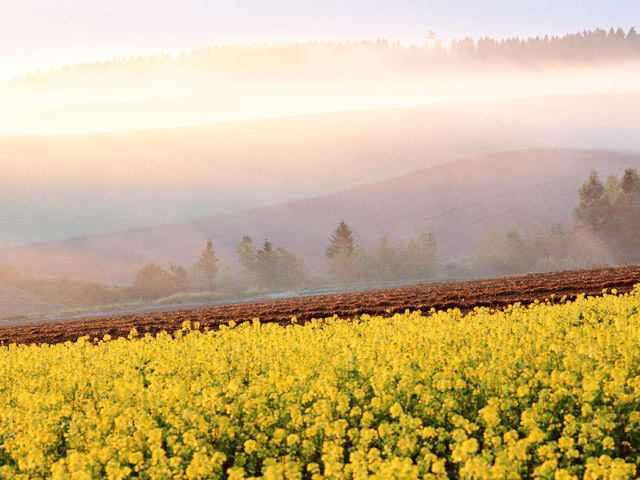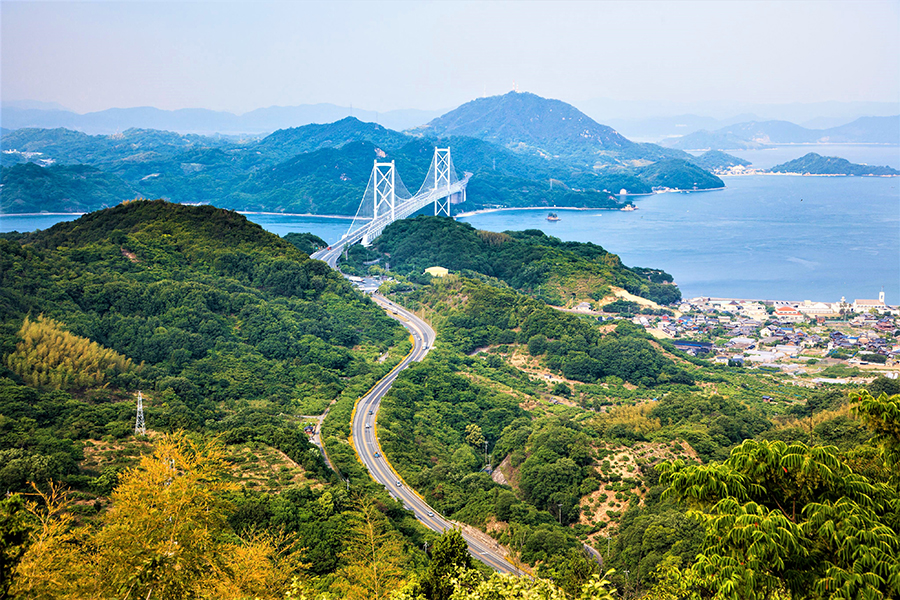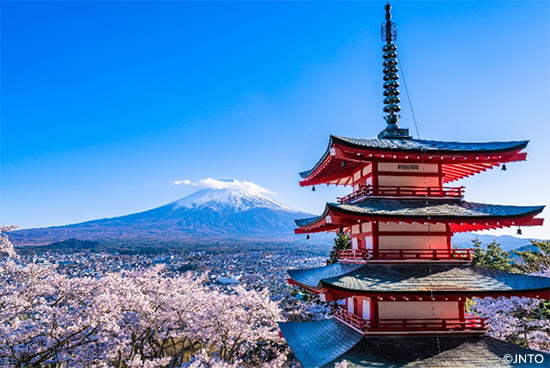I recently sallied forth into the mountains of Okayama-ken, Mitsu-gun, Kamogawa-cho to look for all things Ujifusa. It's the journey, not the destination, they say, but I say not always.
I had little idea of what I would find or how I would find it. But armed with an incomplete family tree, my great-grandfather's American naturalization certificate and the Ujifusa kanji characters, I left my apartment in Wakayama City for Okayama City via the shinkansen bullet train. Once there, I took a short train ride to find myself in the wrong village. An eager, English-speaking barber who had a daughter in Canada helped me look through a phone book that listed no Ujifusas. Next came a one-hour rail trip out of Okayama City way up into the mountains, as my quest for the right town hall and family records continued. I stumbled to daylight one station too early. Fixing this blunder required a 1,500-yen taxi ride to the next stop, where the small-town residents stared dumbly at me, a sighting of a rare hapa. At the town hall, it took two hours of bows, grimaces and repeated explanations in extremely simple Japanese before the clerk told me that, for privacy reasons, she could not give me the addresses of any resident Ujifusas, none of whom apparently lived in that town anyway. The Ujifusa kanji and the naturalization certificate were not enough to make my request officially acceptable.I was referred to the next town over, the name of which I did not recognize because it had been recently combined with another town (municipal merging is happening all over Japan). But there were no buses to the town, no trains, only a 10,000-yen taxi ride, which I could not afford. Then my luck changed. A man from this "next town over" happened to overhear my story, and offered to give me a lift in his great big van, and so I gratefully accepted, joining his red-faced baby who was crying on the front seat. He had an open, honest face, and dressed like a hard-working farmer. In fact, when I asked him what he did, he said he was a lawyer.
A lurching ride on hairpin-turn mountain roads brought me to Kamogawa-cho, now part of the newly-minted Kibichuo township. It turned out to be the sort of tiny village where the man who had given me a lift was town's only lawyer. Next to his office was massive log cabin he was building, but nobody except the builder knew why. It looked like the real thing, right out of A Little House on the Prairie.Everyone in the Kamogawa town hall was eager to help me, as I stirred up vast clouds of dust that rose from old documents. But the attractive woman at the desk told me the same thing about looking up living Ujifusas: that I could not learn any Ujifusa addresses because I did not have my father and grandfather's birth certificates. I was about to do something very un-Japanese and start throwing things.
But the impulse subsided when I was given a wonderfully tall stack of papers about the history of the Ujifusas in Kamogawa. My piecemeal family tree was filled in with previously unknown relatives. I was also given satellite photos of the Ujifusa family burial plot, and the exact location of my great-grandfather's birthplace.
A nice young man from the town hall drove me to the house where my great-grandfather, Ujifusa Shuichi, grew up. It was now occupied by an oba-chan named Katayama. Her wondrously gnarled fingers, twisted like tree roots, were grasping an old wheelbarrow. When she learned who I was, she bowed low and I sheepishly bowed back. A neighbor of oba-chan, an 82-year-old farmer who had known a great-granduncle of mine, said he knew where the Ujifusa burial plot was. He led me up a steep hill for a few hundred yards, where we came upon the Ujifusa tombstones, including a large and weather-beaten stone that marked the burial site of my great-great-grandfather, dead for perhaps a century. All the stones were worn smooth by the hands of time; the elderly farmer managed to read only a few kanji on the stones, and then with great difficulty. Some of the wooden grave markers at the site were dirty and lying on the ground. I stuck them firmly back into place and did some cleaning.
At the end of the day, after I had come back down from the burial plot, the town hall employee introduced me to a relative whom I had previously been forbidden to meet because of my lack of proper paperwork. But eventually, the city employee had graciously decided to ignore the bureaucratic need for more family documents.Hiroko Ujifusa was a woman in her late 60s who appeared as if she had spent her life tilling small rectangles of soil and patiently watching things grow out of them. She told me that she had lived in the same house from the time she was the eldest daughter in the Ujifusa family to the present. With the exception of a rather large TV and a small refrigerator, the house with its stone kitchen floor, tatami mats and vast bundles of futon� had to be very similar to the kind of house great-grandpa Shuichi left behind.
After being served tea and before I left to return to Okayama City, we posed together for a picture. As we embraced, I knew she (and I) was trying to hold back tears, still not believing that we were family. It was then that I realized that satisfying my own curiosity about family history had only been a small part of both the journey and the destination. I had really made the trip so I could call my father and then my grandmother to tell them what I had found, who I had found, and how I had done it. I had come to Kamogawa so that Hiroko Ujifusa could ask me to come back again. And I had done it so that my father, my own oba-chan and Hiroko would be proud of me, because I had put myself out to discover something that all of us want: a better understanding of where we came from, and how we got from there to here and (in my case) back again. Andrew Ujifusa graduated from 2004 from Harvard College, and spent a year teaching English at two high schools in Wakayama-ken. He is currently an editor at the Madison County Journal, a weekly newspaper in Mississippi. *A slightly different version of this article was published in the Rafu Shimpo newspaper in Los Angeles. Andrew Ujifusa JET AA 2004-2005 Wakayama Prefecture

















